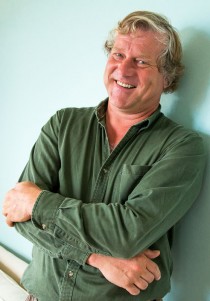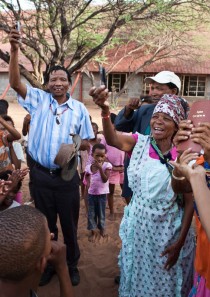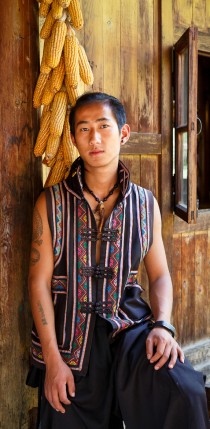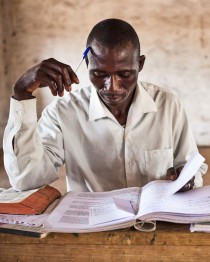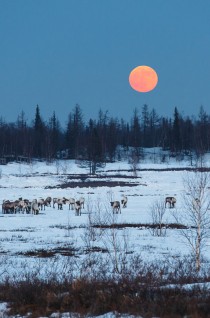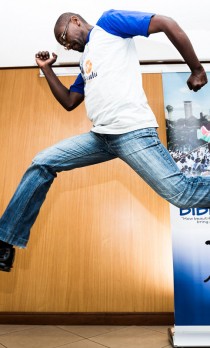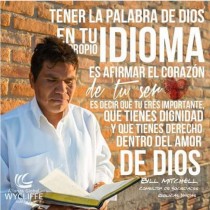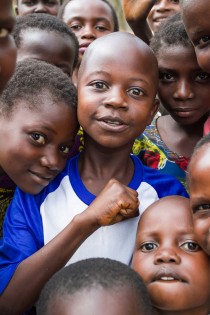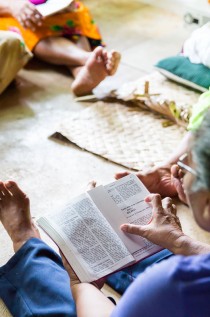Stories and Brotherhood: Bible Translation in Southern Africa
 The geographic region of Southern Africa includes 10 countries with more than 100 language communities that have no available Scripture in their heart language. Wars, linguistic complexity and environmental obstacles have historically been barriers to extensive Bible translation work here. Today, God is writing a new chapter for Southern Africa. Bible translation organizations* across the region are working toward a common goal: helping local communities translate God’s Word into their own languages.
A New FocusAfter serving in Bible translation more than 20 years in Mozambique, South African linguist and translation consultant Sebastian Floor returned home with a new vision. He wanted to help the dozens of language communities in other Southern African nations that need and want access to God’s Word. In late 2009 Sebastian proposed a plan to the Board of Wycliffe South Africa, requesting that the organization take a more significant role in facilitating Bible translation for these language communities. Since its founding, Wycliffe South Africa has supported Bible translation through prayer and recruiting personnel, but engaging directly in translation work was outside of its experience. In December 2009, the Board agreed to the new venture, but with one important instruction: “They wanted to see all the work being done, managed, owned and driven by the end-users of the translation,” recounts Sebastian, who is now the director of Wycliffe South Africa’s Regional Translation Services (RTS). With local communities leading the work, Wycliffe could provide critically needed training and support from a position of servanthood. Sebastian put together a small team of trainers and consultants. When they began looking for ways to connect with language communities, they quickly discovered that their African brothers and sisters were already looking for them.  Invitations to PartnerWithin two months of RTS beginning, two requests came from Angola. Tucked away on a mountain top, the Mukwandu people first heard the Good News from an Angolan couple trained by Youth With A Mission (YWAM). Over the years of their ministry, a church was born and flourished. The couple tried to translate the Bible, writing translated passages in an exercise book, but were soon overwhelmed. They started asking around for help and Sebastian heard about their request. Around the same time, a Wycliffe colleague forwarded Sebastian an article about another YWAM couple in Angola who were working with the Mukubal people. In the article they requested help from Wycliffe. For Sebastian, this was a discovery not only of a new translation need, but also a language that he didn’t know existed. Sebastian left for Angola as soon as he could. At the time YWAM Angola was involved in eight minority languages in the country, and Wycliffe agreed to work together with them on six of those. Wycliffe provided training and help with strategic planning, while YWAM became the facilitating organisation for Bible translation on the ground. “This is a different way of working. It is an experiment in many ways,” explains Sebastian. This new model of partnership encouraged other organizations in the region to partner with RTS in similar ways.
Joining ResourcesIn 2011 Wycliffe South Africa partnered with Seed Company, the Bible societies ofNamibia and Botswana, Lutheran Bible Translators and various churches to start the San Bible Partnership. The San peoples live throughout the Kalahari Desert region of Botswana and Namibia. These nomadic hunter-gatherers, indigenous to southern Africa, number approximately 90,000 and are believed to be one of the oldest ethnic groups in the world.  They speak some of the most intricate living languages, with up to 80 distinctive mouth clicks. Because of these complexities, alphabet development is challenging. San cultures also have a strong oral tradition, and literacy isn’t widely valued. Responding to the unique culture of the San peoples, these organizations are working together to translate and record oral Bibles that will be available on audio devices. They started on nine San languages and since 2015 expanded to 11 languages so all San people will have access to God’s Word.  Brotherly RelationshipsWorking with local partners means that RTS staff make building strong relationships their first priority. Sebastian calls it “brotherly relationships.” “We aim to build the strength of relationships to the extent that we feel we are really brothers,” he explains. “It is no good for us to just go there for two days, discuss [an agreement], sign it and disappear. We need to sit together and laugh together. It unleashes a high level of trust.” Sebastian requires that all his consultants move beyond only teaching technical skills and genuinely enjoy engaging with the people they serve.  “It’s a key value that we insist on. I would rather that my staff get less work done but come back with a solid report that they had a fine time together,” he says. This is an attitude that Sebastian describes as being well-received by their partners. “We might be starting slower,” Sebastian admits, “but you can work so much faster later on because you’ve laid a foundation of trust in the beginning.”
Starting with StoriesThe RTS emphasis on relationships also affects how they advise partners to begin Bible translation projects. Their recommendation is often to start with oral Bible storying. Using this approach, a short passage of Scripture is translated orally and then shared with others. One advantage of this method is the participation of the wider community from the outset. “If we bring what they can relate to, they start to get interested and want to learn more,” explains Durk Meijer, an ethno-communication consultant for RTS. |






